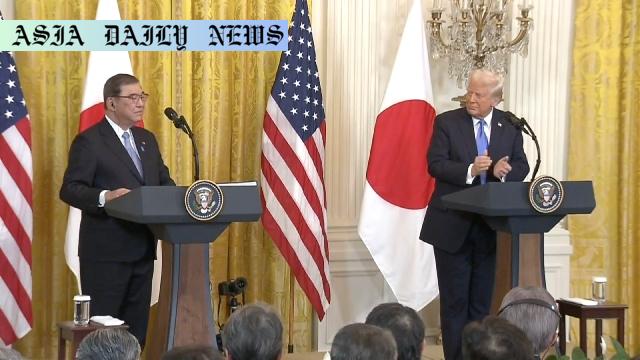Nippon Steel: Japan PM Ishiba outlines the planned investment in US Steel is a strategic initiative, not just a simple takeover.
Nippon Steel’s bid for US Steel is classified as a strategic investment by Japan’s PM.
The move is seen as vital to maintaining US Steel’s identity as an American company.
PM Ishiba highlighted his efforts to establish positive relations with US President Trump.
The investment plan considers national security concerns, following past opposition by Joe Biden and Trump.
Ishiba also suggested that exploitative trade policies could have long-term negative effects.

Nippon Steel’s Strategic Investment Framework
Nippon Steel’s planned acquisition of US Steel has been redefined by Japan’s Prime Minister Ishiba Shigeru as a “strategic investment” rather than a straightforward corporate takeover. This clarification is expected to address the apprehensions expressed by US policymakers regarding national security and economic ownership. The emphasis from the Japanese leadership aims to maintain mutual trust between Japan and the United States while ensuring the growth of industries vital to both nations’ economies.
The US Security Concerns: Legacy of Biden’s Ban
In January, then-President Joe Biden blocked Nippon Steel’s initial efforts to acquire US Steel, citing the bid as a potential threat to national security. This objection underlined growing concerns over foreign investments in critical industries. Former President Donald Trump also opposed the acquisition during his campaign, amplifying nationalist sentiments around US economic independence.
Prime Minister Ishiba’s Diplomatic Stance
As part of ongoing efforts to strengthen Japan-US relations, Ishiba revealed the importance of maintaining a dialogue with President Trump. Describing their recent summit as productive, the Japanese Prime Minister stressed the necessity of demonstrating Japan’s intent to collaborate rather than exploit. By presenting Nippon Steel’s plans as an investment, Japan minimizes the perception of foreign control over critical American assets.
Challenges with Tariffs and Bilateral Trade
The discussion also comes amidst President Trump’s announcement of impending tariff changes, which have raised concerns globally. PM Ishiba underlined that unilateral and exploitative trade measures could lead to long-term instability. However, he confirmed that tariff increases on Japanese automobiles were not mentioned during the talks, positioning the conversation around broader cooperation rather than conflicts.
Impact on US-Japan Defense Spending Discussions
Amid worries about Japan’s financial contributions to security, Ishiba confirmed that there was no new request from Trump to increase defense spending by Japan. This development aligns with the broader theme of this summit—establishing trust and equity in the partnership without exacerbating imbalances.
A Resilient Partnership Between Nations
The Nippon Steel case becomes a lens through which the evolving dynamics of US-Japan relations can be observed. As both countries aim to sustain economic growth while safeguarding strategic interests, this investment signals potential for collaboration rather than contention. It establishes a precedent for addressing national security concerns diplomatically to safeguard mutual interests.
With careful navigation of these challenges, the Nippon Steel and US Steel collaboration could prove to be a cornerstone of industrial innovation and inter-nation partnership in an increasingly globalized yet sensitive world economy.



Commentary
Strategic Diplomacy in the Nippon Steel Investment
The announcement by PM Ishiba that Nippon Steel’s engagement with US Steel is framed as an investment rather than a takeover represents a masterstroke in diplomatic communication. By ensuring the deal avoids being viewed as a power grab, Ishiba has unlocked pathways for sustained dialogue with US policymakers, a crucial move in today’s interconnected global economy.
The Implications of Past Leadership Decisions
It is noteworthy that Ishiba’s statement seeks to differentiate itself from the political environment shaped by previous US leadership. By revisiting Biden’s security-driven rejection and Trump’s nationalist rhetoric, Ishiba aligns this investment narrative with shared economic growth. This careful framing might earn Japan greater leverage in negotiations without sacrificing its own economic priorities.
Broader Industrial and Economic Implications
As someone observing this strategic pivot, it seems clear that framing investment strategically mitigates the risks of escalating trade disputes. However, what’s even more impressive is the foresight to highlight collaboration over unilateral control. This move enhances Japan’s presence as a trustworthy ally of the US, focusing on mutual empowerment rather than exploitation.
In conclusion, Nippon Steel’s carefully articulated partnership with US Steel offers a roadmap for addressing global economic and industrial challenges through collaboration, diplomacy, and respect for national security concerns.